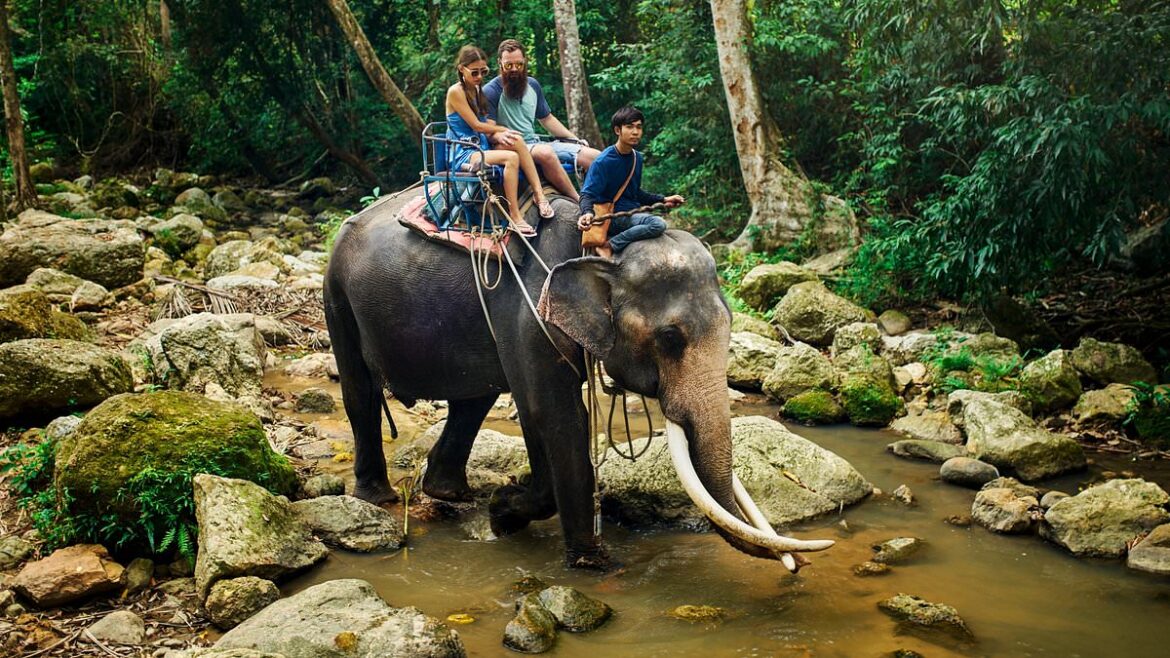Thailand has long been a dream destination for travelers, with its stunning beaches, vibrant cities, and rich cultural heritage.
But behind the postcards and Instagram-perfect moments lies a side of tourism that’s far less glamorous—one that exploits people, animals, and even the local legal system.
The Rise of Sex Tourism
Since the HBO series The White Lotus filmed in Thailand, some areas have seen a surge of visitors specifically seeking sex tourism.
While “happy ending” massage parlours have existed for years, streets in nightlife hubs like Pattaya are now lined with workers dressed in maids’ outfits and other risqué costumes, catering largely to solo male tourists.
Despite prostitution being illegal under the 1996 Prevention and Suppression of Prostitution Act, an estimated 200,000 sex workers operate in Thailand, including older women and trans individuals, many exploited through human trafficking.
Getting caught soliciting sex carries a fine roughly equivalent to a half-hour session with a worker, highlighting how little is done to curb the industry.
For visitors hoping for a legitimate Thai massage, there are reputable centers employing marginalized groups such as blind masseurs or former female inmates.
Choosing these services supports ethical practices instead of funding exploitation.
The Cannabis Craze and Its Consequences
Thailand legalized cannabis in 2021, leading to an explosion of dispensaries in tourist hotspots like Chiang Mai, Bangkok, and Koh Samui.
While some shops stick to legal cannabis, others sell harder substances, resulting in accidents and even tourist deaths.
Authorities are now reconsidering recreational use rules, reintroducing medical certificates to buy marijuana.
Exploitation of Animals in Tourism
Tourists hoping to interact with Thailand’s iconic elephants and tigers often unknowingly contribute to cruelty.
Many so-called elephant sanctuaries still offer rides or allow visitors to handle baby elephants, which can be harmful to the animals.
A recent tragic accident claimed the life of a Spanish tourist, underscoring the dangers.
Reputable sanctuaries, like Burm And Emily’s Elephant Sanctuary (BEES) or BLES, offer ethical, hands-off experiences.
Tiger tourism presents similar issues. Farms claiming humane practices often keep tigers in tiny enclosures or use abusive training methods.
Visitors are frequently misled about the animals’ treatment; the Wildlife Friends Foundation Thailand provides a safe alternative for observing tigers without direct contact.
Human Exploitation in Cultural Attractions
Some cultural tourism, such as “longneck Karen villages,” also masks exploitation.
Women forced to wear brass neck rings are often trafficked refugees from Myanmar, coerced into performing for tourists.
While marketed as cultural experiences, these sites turn humans into attractions, a practice that should never be condoned.
Property and Tourism: A Modern Form of Neocolonialism
Foreign property investment in Thailand is another area of concern.
While apartments and condos are affordable, many foreigners buy them to rent to other tourists at high rates, often illegally via Airbnb.
Mindful travelers should ensure their spending benefits local residents rather than exploiting the system.
Thailand Remains a Top Destination Despite Challenges
Despite these darker aspects, Thailand remains an incredible place to visit.
Its nature, culture, cuisine, and safety make it a standout destination in Asia.
Ethical tourism is possible, with NGOs and social enterprises offering positive experiences for visitors who want to travel responsibly.
The key is awareness: understanding where your money goes, recognizing exploitation, and supporting practices that benefit both people and wildlife ensures that your trip can be rewarding without contributing to harm.



